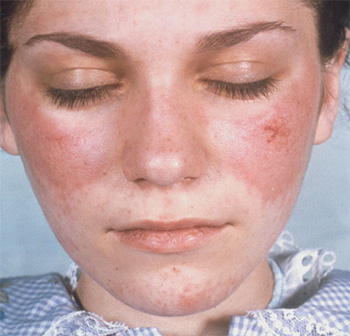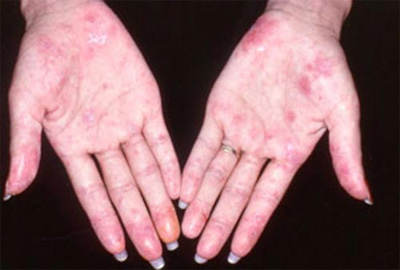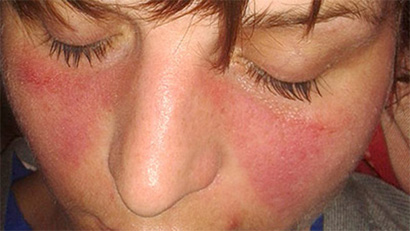
The immune system normally fights off dangerous infections and bacteria to keep the body healthy. An autoimmune disease occurs when the immune system attacks the body because it confuses it for something foreign. There are many autoimmune diseases, including systemic lupus erythematosus (SLE).
The term lupus has been used to identify a number of immune diseases that have similar clinical presentations and laboratory features, but SLE is the most common type of lupus. People are often referring to SLE when they say lupus.
SLE is a chronic disease that can have phases of worsening symptoms that alternate with periods of mild symptoms. Most people with SLE are able to live a normal life with treatment.
According to the Lupus Foundation of America, at least 1.5 million Americans are living with diagnosed lupus. The foundation believes that the number of people who actually have the condition is much higher and that many cases go undiagnosed.
 What Causes SLE? What Causes SLE?
The exact cause of SLE isn’t known, but several factors have been associated with the disease.
1. Genetics
The disease isn’t linked to a certain gene, but people with lupus often have family members with other autoimmune conditions.
2. Environment
Environmental triggers can include:
• ultraviolet rays
• certain medications
• viruses
• physical or emotional stress
• trauma
3. Sex and hormones
SLE affects women more than men. Women also may experience more severe symptoms during pregnancy and with their menstrual periods. Both of these observations have led some medical professionals to believe that the female hormone estrogen may play a role in causing SLE. However, more research is still needed to prove this theory.
What Are the Symptoms of SLE?
Symptoms can vary and can change over time. Common symptoms include:
 • severe fatigue
• severe fatigue
• joint pain
• joint swelling
• headaches
• a rash on the cheeks and nose, which is called a “butterfly rash”
• hair loss
• anemia
• blood-clotting problems
• fingers turning white or blue and tingling when cold, which is known as Raynaud’s phenomenon
• Other symptoms depend on the part of the body the disease is attacking, such as the digestive tract, the heart, or the skin.
Lupus symptoms are also symptoms of many other diseases, which makes diagnosis tricky. If you have any of these symptoms, see your doctor. Your doctor can run tests to gather the information needed to make an accurate diagnosis. |